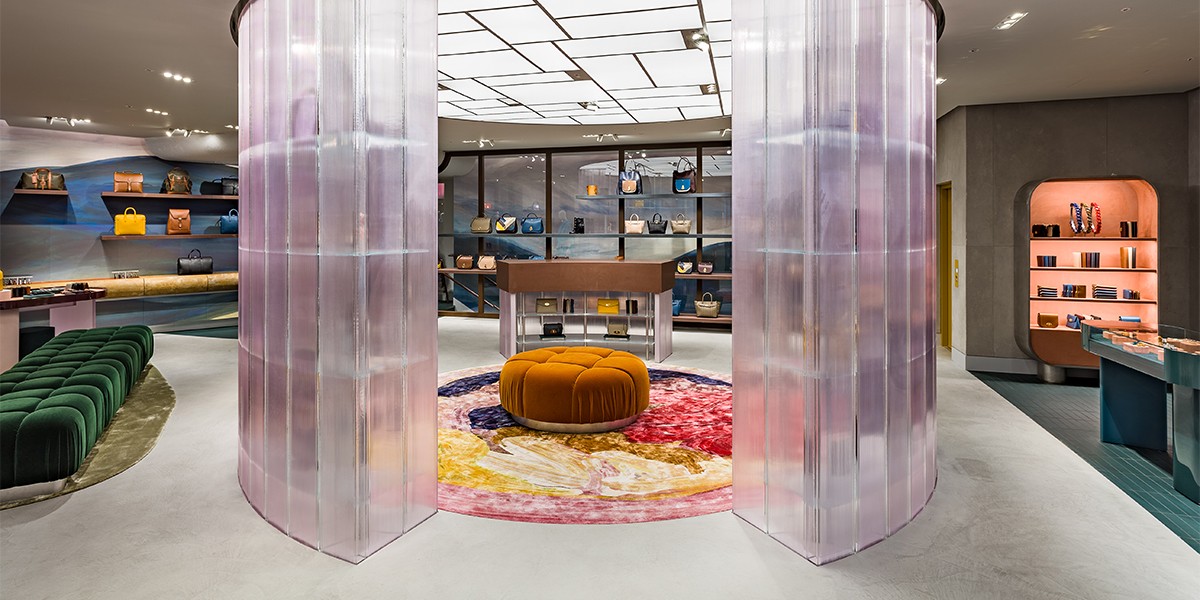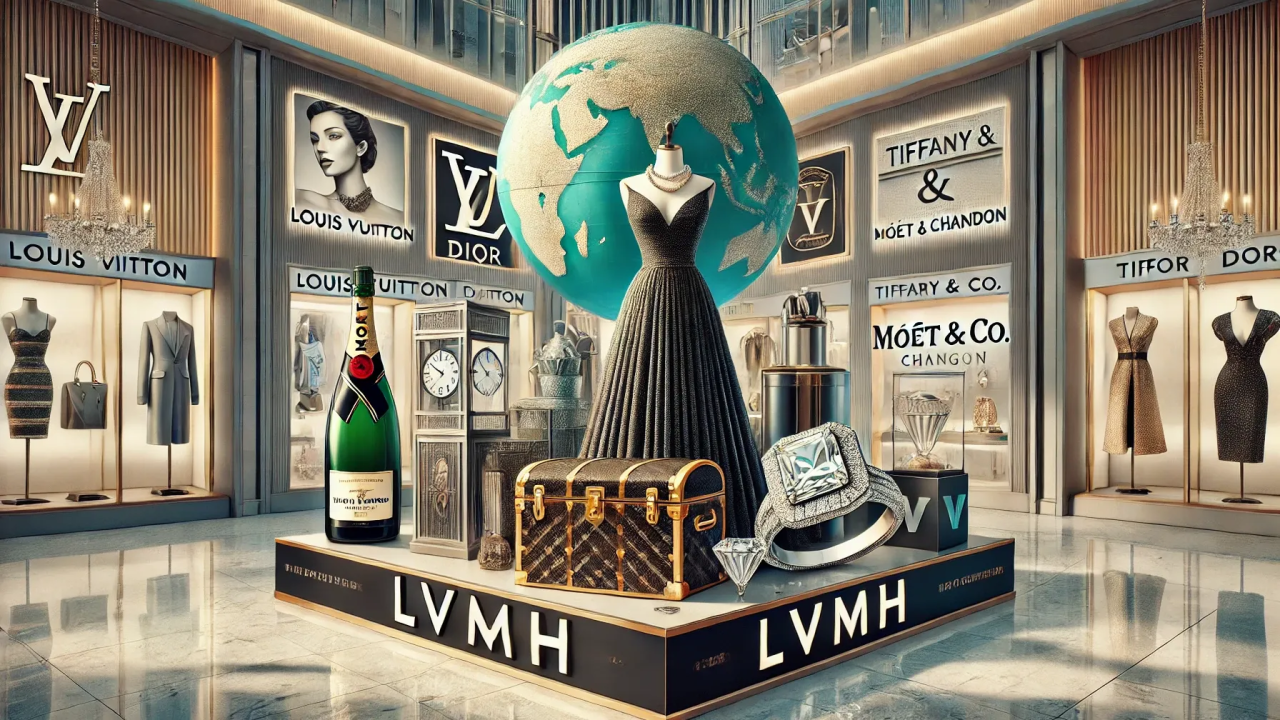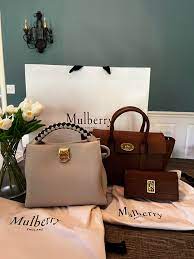In the world of luxury fashion, brands with a rich history and a commitment to craftsmanship often find themselves in the crosshairs of corporate buyouts or strategic alliances. Such is the case with Mulberry, one of Britain’s most iconic handbag brands, which recently found itself at the center of speculation surrounding its future ownership. As Frasers Group, led by Mike Ashley, has shown interest in increasing its stake in Mulberry, the brand's founder, Roger Saul, has suggested that global luxury conglomerate LVMH might be a more suitable partner. This move could not only safeguard Mulberry's heritage but also ensure its continued presence in the competitive global luxury market. With Mulberry’s reputation for timeless design and quality craftsmanship, the idea of an LVMH partnership has stirred conversation in both the fashion world and investment circles. Follow us here at Gen Z Lipstick Colors Worth Wearing This Fall.
Mulberry Brand: A Rich Legacy of Craftsmanship
Mulberry was founded in 1971 by Roger Saul in the rural town of Somerset, England. From the beginning, the brand distinguished itself with its commitment to producing high-quality leather goods, drawing inspiration from traditional English craftsmanship. Mulberry's unique blend of functionality and style quickly gained attention, and by the 1980s, the brand had cemented its reputation as a purveyor of luxury handbags, briefcases, and accessories. The iconic Mulberry handbags, like the Bayswater and Alexa models, became must-have items for fashion enthusiasts, representing the epitome of British elegance.
Related: Is Dior Eyeing Jonathan Anderson for a Creative Takeover?
Related: New Levi's Campaign Featuring Beyonce
Over the years, Mulberry has remained true to its roots by continuing to produce many of its bags in its own Somerset factory, known as The Rookery. This commitment to local production has been a key part of the brand's identity, distinguishing it from many competitors that have outsourced production. For the modern consumer, who values authenticity and craftsmanship, Mulberry’s ability to maintain this approach has been a significant selling point.

However, despite its strong legacy and loyal following, Mulberry has faced challenges in recent years, particularly as the luxury market has shifted. The rise of fast fashion, coupled with increased competition from international luxury giants, has put pressure on the brand to evolve and expand its global presence. This is where the recent interest from Frasers Group and the suggestion of LVMH involvement comes into play.
LVMH: A Global Luxury Powerhouse
LVMH Moët Hennessy Louis Vuitton is the world’s largest luxury goods conglomerate, owning prestigious brands such as Louis Vuitton, Dior, Fendi, and Givenchy. LVMH’s dominance in the luxury sector is unparalleled, with its portfolio spanning fashion, cosmetics, wine and spirits, jewelry, and more. The conglomerate’s success is largely attributed to its strategic acquisitions, where it brings smaller, often heritage brands under its wing and helps them scale globally while maintaining their unique identities.

Roger Saul’s suggestion that LVMH “step in” following the Frasers Group's interest in Mulberry is not without merit. For a brand like Mulberry, aligning with a luxury giant such as LVMH could open up new expansion opportunities, particularly in markets like Asia, where luxury goods are in high demand. Under LVMH, Mulberry could also benefit from better distribution networks, innovative marketing strategies, and access to new customer bases—all while preserving the brand’s British craftsmanship and aesthetic.
LVMH has a track record of elevating brands without diluting their core values, and Mulberry, with its deep-rooted British heritage, could be a prime candidate for such a partnership. The global luxury conglomerate could offer the resources needed to help Mulberry handbags stay competitive in an increasingly saturated market while also appealing to the next generation of luxury consumers, including millennials and Gen Z.
Mulberry Handbags: A Symbol of Timeless Elegance
At the heart of Mulberry’s success is its handbags, which have become synonymous with timeless style and impeccable craftsmanship. Some of the most iconic models, like the Bayswater and Alexa, have not only achieved cult status but have also become staples in the wardrobes of fashion-conscious individuals around the world. These bags are beloved for their classic design, durability, and the sense of understated luxury they convey.
The Bayswater, for instance, is often hailed as one of the greatest luxury handbags of all time, thanks to its elegant structure and versatile design. The Alexa, named after fashion muse Alexa Chung, became an instant hit upon its release, perfectly capturing the relaxed yet refined aesthetic that Mulberry is known for. Both of these bags and others in the Mulberry lineup have helped the brand maintain its reputation as a leader in luxury accessories.
However, as the market evolves, so too must Mulberry. In recent years, the brand has introduced new models and designs to appeal to a younger, more global audience. While the brand’s core DNA remains intact, the addition of more contemporary pieces has allowed Mulberry handbags to stay relevant in a fast-changing industry.
Current Trends and the Future Outlook for Mulberry
With Frasers Group holding a significant stake in Mulberry, the brand’s future is at a crossroads. Frasers, known for its acquisition of other British brands such as House of Fraser and Sports Direct, has expressed interest in expanding its influence in the luxury sector. However, Mulberry’s founder, Roger Saul, seems to be advocating for a different path, suggesting that LVMH’s involvement could provide the brand with a more aligned partnership that emphasizes craftsmanship and global expansion rather than just financial control.
For Mulberry, the decision of whether to align with a company like Frasers or pursue a potential partnership with LVMH will be critical in shaping its future. If LVMH were to step in, the brand could see a resurgence, tapping into LVMH’s vast network of resources and expertise in the luxury sector. This could help Mulberry expand into emerging markets, attract younger consumers, and strengthen its global presence.
As for Mulberry’s iconic handbags, there’s no doubt they will continue to be at the forefront of the brand’s offerings. However, as fashion trends shift and consumer preferences evolve, Mulberry will need to strike a balance between maintaining its heritage and embracing innovation. With sustainability becoming a key focus for many luxury consumers, Mulberry’s continued commitment to local production and ethical sourcing will likely play an important role in its future success.
